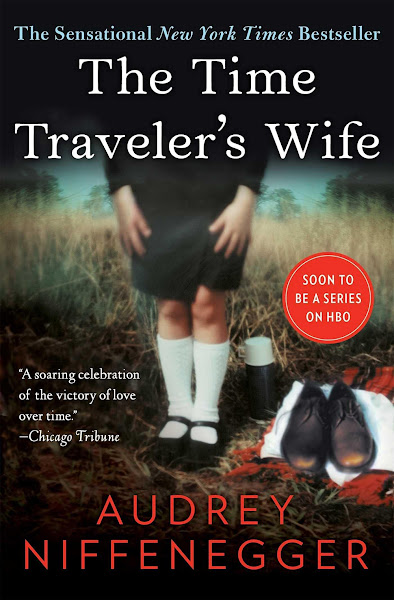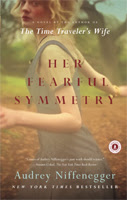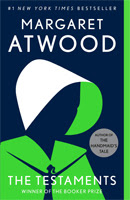
The Time Traveler's Wife by Audrey Niffenegger was published in September 2003. It's the story of Henry, a time-traveling librarian. He involuntarily hops from one place and time to another. As an older man, Henry visits the past and meets his wife, Clare, as a young girl. While Clare knows Henry from her girlhood on and meets him during different stages of her life, Henry first meets Clare in his mid-twenties. The concept may seem confusing at first, but the book does not take too long to get into. The time and date reference points at the start of each section keep the reader oriented.
If I were writing this review immediately after finishing the book, then I think I would have focused on my interest in the plot. I felt compelled to know what happened in the story. I felt driven to read because of the foreshadowing throughout the book. Since I’ve waited a little while to write down my thoughts, I’ve had some time to think over other aspects of the book and areas where it could have been better. I think the story would make a fun movie, perhaps a better movie than a book.
While the concept of watching a romantic couple cope with Henry’s disorder could have been fascinating, none of the characters were as well-drawn as they could have been. The original premise was not carried out to the full potential because I didn’t feel empathy for either of the main characters. The plot drove the story much more than character development. Sometimes while reading, I would mistake Henry’s narration for Clare’s, or vice versa. Most of the time, the two main characters felt interchangeable. The supporting characters: Gomez, Ingrid, Charisse, and family members all could have been better developed to contribute more to the story.
Another major problem is that Henry is depicted as “good,” while his motivations towards Clare are more manipulative than loving. While he may believe that they are meant to be together, she only feels that way about him because a future version of him has visited her repeatedly (from the age of 6) and told her that they will marry. What is Clare’s choice in this when Henry declares her future is determined?
At the end of the story, Henry could have let Clare go on with her life, but he gives her the hope of seeing him once more. As a reader, I was saddened to think of her waiting alone just to catch a glimpse of him again. It’s not clear why Clare is in love with Henry; is it because she feels she has to be? The author spent far too much time focusing on their great sex life (often crudely described in extensive detail), but there should have been something more that held them together.
As a reader, I felt manipulated into having sympathy for the characters. Clare has, not one, but seven miscarriages, before finally having a daughter. Meanwhile, Henry relives his mother’s car accident and decapitation again and again, and loses his feet to frostbite. I felt toyed with after all that. I would have been thrilled had the book ended with Ingrid shooting Henry, which would have had some meaning. Instead, Henry’s death was foreshadowed for the last third of the book, and it was an accident that made little sense.
What I felt left with was a good, engrossing read. While not liking the characters, I still couldn’t put the book down. At the same time, I am left with mixed feelings because something was missing, and I know the book could have been a great one.
Purchase and read books by Audrey Niffenegger:


© penciledpage.com







Search This Website